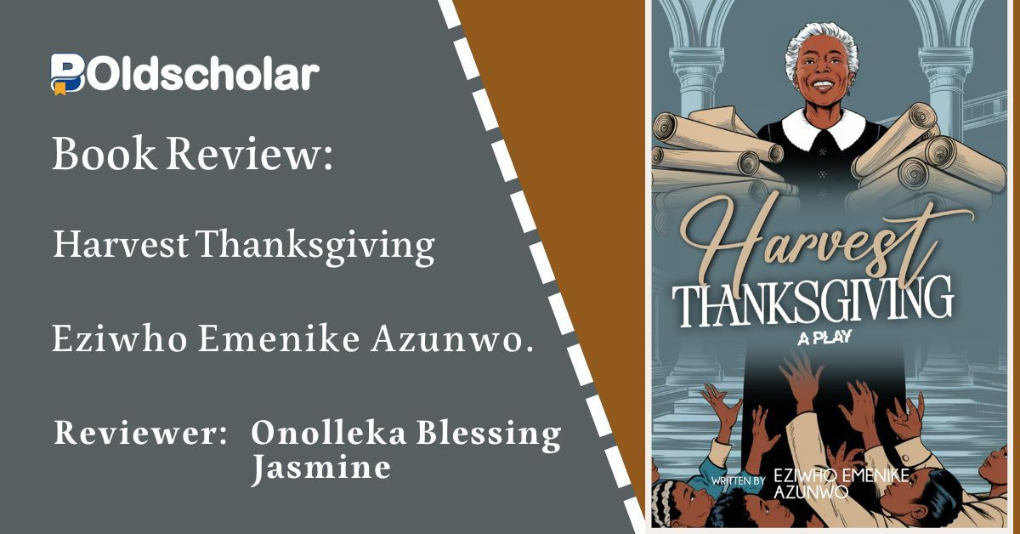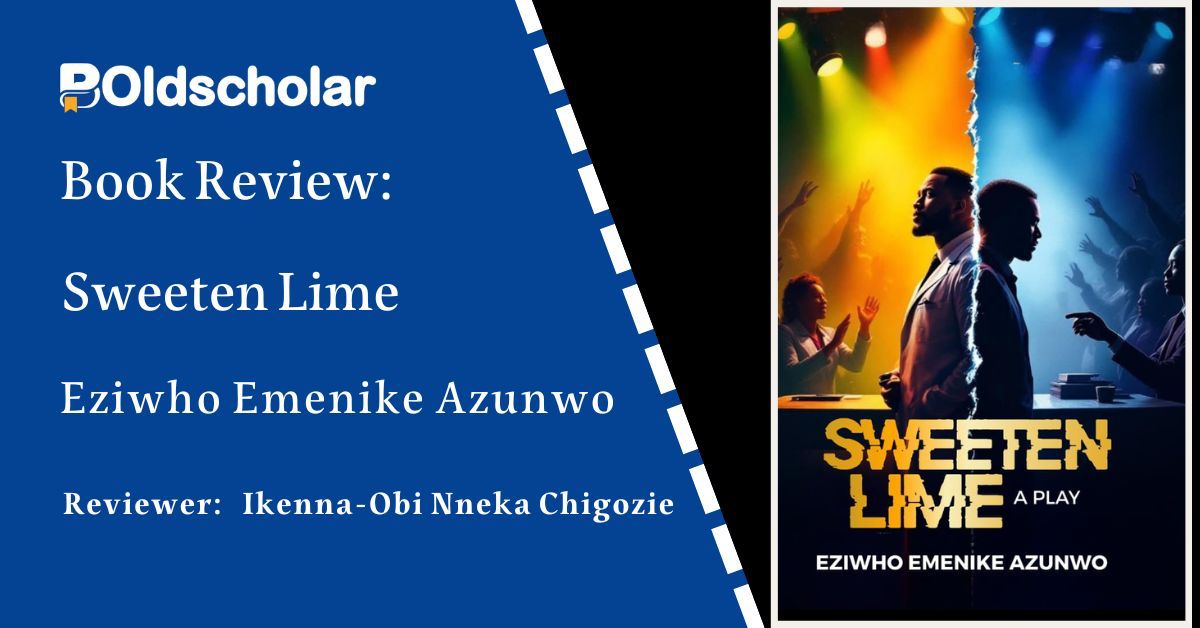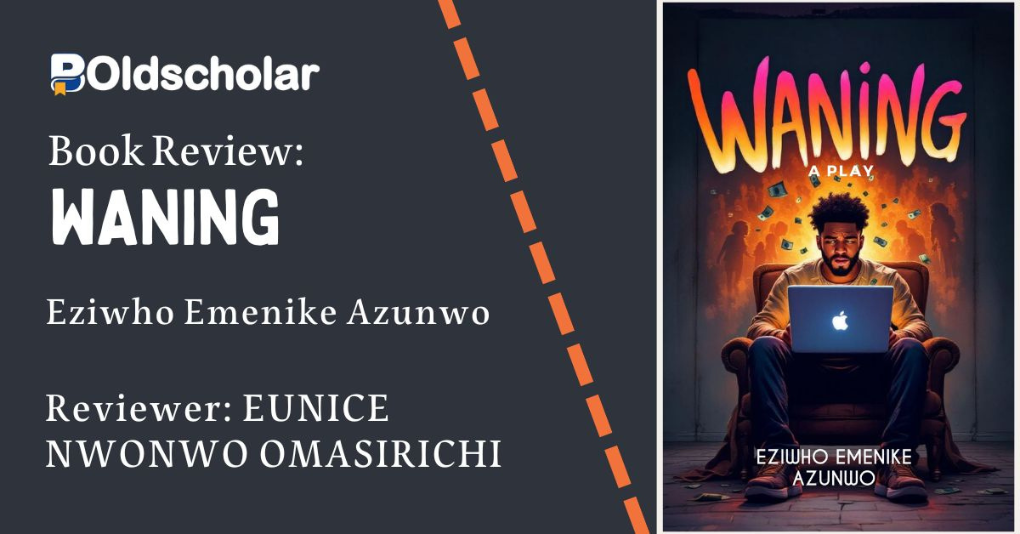Book Title: Harvest Thanksgiving
Genre: Satire
Author: Eziwho Emenike Azunwo
Reviewer: Onolleka Blessing Jasmine
Publisher: Covenant Daystar Publishers
Pagination: 54
Introduction
Harvest Thanksgiving by Eziwho Emenike Azunwo is a compelling and an emotionally intense drama that looks into the abuse and torment of academic power and its devastating impact on students. The play is set within a university system, it uses clear characters and plain dialogue to expose the psychological, emotional, and financial exploitation that occurs within higher education. Looking at the conflicts and themes, one will note the important questions about leadership, integrity, and institutional responsibility that the play raises.
Plot Summary
The Play: ‘Harvest Thanksgiving’ takes us through the experiences of Mr. Edem and Mr. Tolu, both PhD candidates struggling under the supervision of Professor Cecilia, a domineering and unyielding academic, who will stop at nothing to humiliate them to the least level. With every effort made, prof. Cecilia made sure that these men face constant humiliation and setbacks from her, cancellation of topics, unlawful demand of finance, psychological and emotional manipulations are all part of the setbacks issued by Prof. Cecilia. Professor Cecilia being a powerful figure bask herself in the control and intimidation of students especially the ones under her supervision and this calculated vigorous act of her eventually drives one of her students Mr. Edem to abandon his goal to pursue a higher level of degree which he so desire. The narrative ‘Harvest Thanksgiving’ reaches the climax accountability as Prof. Cecilia is summoned before the Governing Council through Professor Didia following the too many complaints from students.
Themes
The central theme of the play is abuse of academic power. Professor Cecilia’s behavior as seen in the play reflects a disturbing habit where authority is abused and used as a power tool rather than been exercised responsibly. Other themes include mental health struggles, this could be seen in the scene where Professor Cecilia cancelled Mr. Tolu’s project and reduced Mr. Edem’s confidence and finally led him to abandoning his utmost dream of becoming a PhD holder, to add to it is student resilience, corruption, and the quest for justice. The play when critically looked at serves as a call to reform the institutions in our country, emphasising the need for ethical mentorship and a more supportive academic environment.
Character Analysis
Professor Cecilia with her thirst for authority, is the pod of institutional toxicity, a poignant distress on student’s mental state especially the ones under her supervision. Her manipulative, and often exploitative actions gives a clear contrast to the values academia should hold.
Mr. Edem and Mr. Tolu represent countless students who suffer in silence. Edem’s emotional breakdown and his withdrawal from the program shows the toll such systems can take.
Supporting characters like the Course Rep and Professor Didia help in making the story a complete academic digest. The Course Rep’s sincere concern with Didia’s act of responsibility serves as justice and institutional response showing that a sanitised and a conducive atmosphere for learning is possible.
Language and Style
The play is written in a simple, conversational language that captures realism as it clearly shows the day to day realities of the academic interactions. The dialogues carries the characters’ frustrations and emotional states. The use of monologues, and stage direction heightens the intensity of each scene.
Structure
The play leads a clear structure, with well-defined scenes that build tension gradually as they convey a powerful message of boldness and morality within the walls of academic. Every action contributes to character development and theme advancement. Professor Cecilia’s confrontation with institutional backlash, serves as a powerful and fulfilling resolution that underscores the consequences of unchecked power.
Conclusion
Harvest Thanksgiving is must read and compelling play that highlights on the inner struggles so many students go through and the schemes within academic institutions. It is both an instructional narrative and an outcry, giving voice to those who are often silenced. With its honest portrayal of cracks in the University system and its emotional decline, the play succeeds in kindling critical reflection and deliberates on moral, wise counselling, and student welfare. It is a powerful piece of literature work deserving of both scholarly attention and theatrical performance.
Recommendations
I strongly recommend Harvest Thanksgiving to university administrators, academic staff, postgraduate students, theatre directors, and policy makers in the education sector. This play is relevant for anyone involved in academic mentorship, as it challenges educators to reflect on their responsibilities and moral conduct. It is also valuable for students attaining postgraduate studies. It gives proof and awareness of the challenges they might face in the system. For those that love theatre, Harvest Thanksgiving presents a powerful script for stage and even on screen performance with potential to raise meaningful dialogue and advocacy for reform in educational.
Reference
Azunwo, E. E. (2025). Harvest Thanksgiving: A play.
Covenant Daystar Publishers.
Share this post





Be the first to comment on this post